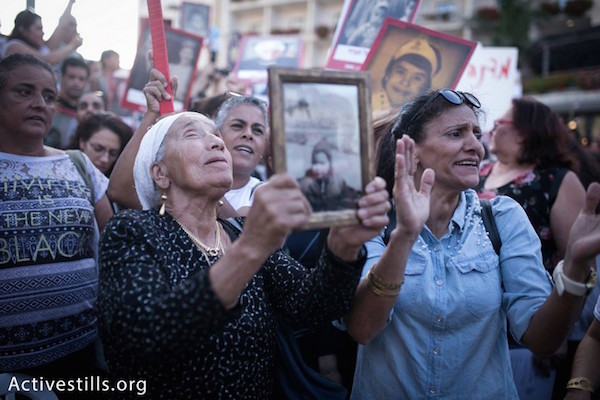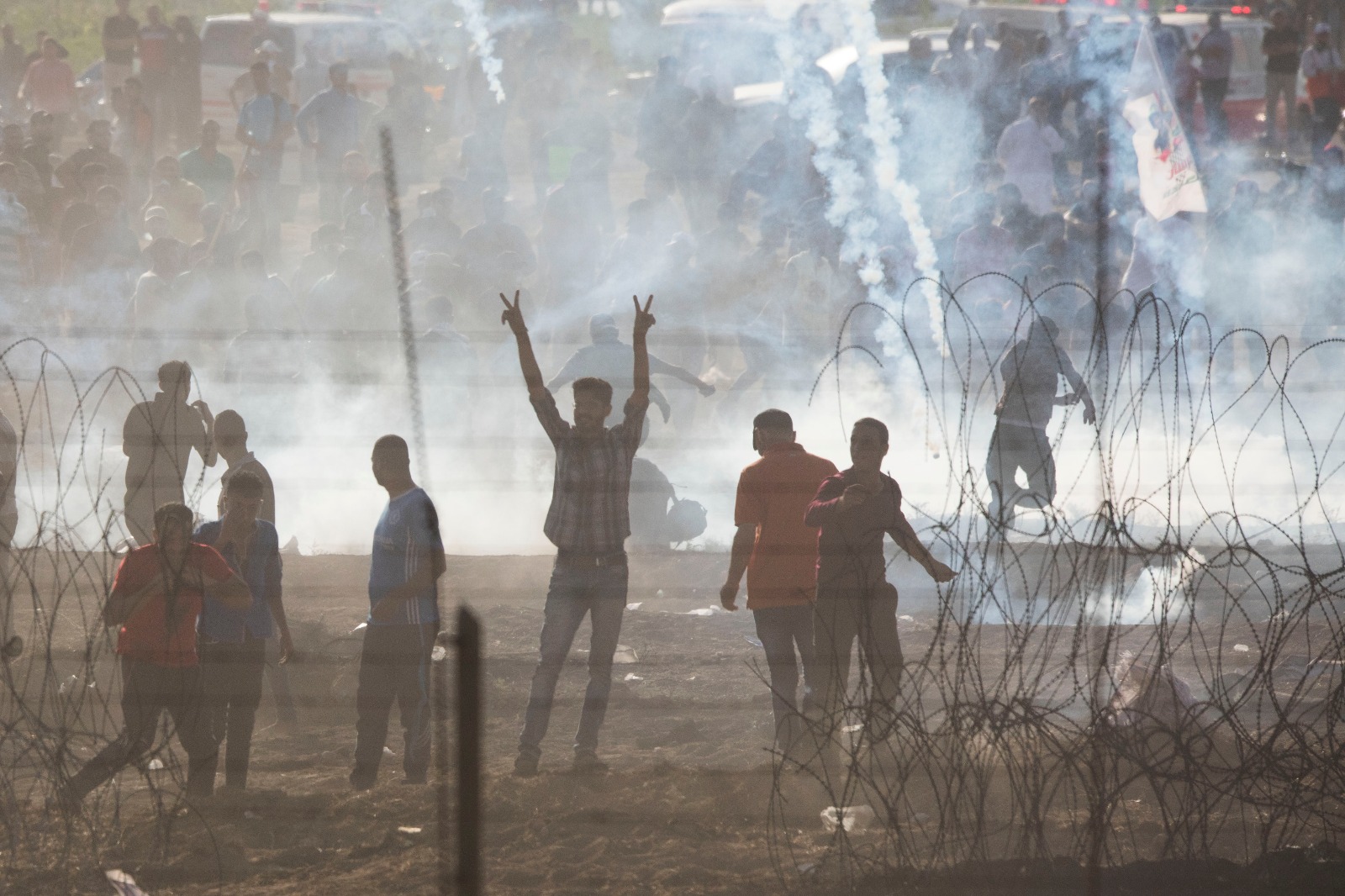Israel’s prime minister wants Iranian protesters to know they have his full support in their struggle against their government. The same can’t be said about millions of people under his own government’s rule.
Benjamin Netanyahu likes to present himself as a fervent supporter of democracy and pro-democracy protests. In fact he is a very selective advocate of democratic struggles, throwing his weight behind protests that align with his agenda even as he rejects those who protest ideas or institutions that undermine it.
This week, for example, he expressed his admiration for anti-regime protestors in Iran who have been demonstrating against the financial distress caused by the decline in the rial’s value. “Can you imagine what your money could do if it was not spent promoting terrorism, in Syria and in Yemen, and instead would be spent to solve air pollution and water scarcity in Iran?” Netanyahu asked in a video published on his Facebook page, calling the Iranian people “the only solution to these problems.”
And yet, just a few days prior, the prime minister didn’t even acknowledge the Israeli families of Yemenite descent who demonstrated outside his home to protest the state’s refusal to address the abduction of Yemenite and other Mizrahi children from their parents during the early years of the state.
Entire families who had their children taken away from upon arrival in Israel marched to the Prime Minister’s Residence in the wealthy Rehavia neighborhood, demanding the government take responsibility for one of the darkest chapters in the country’s history. But when they arrived at Netanyahu’s residence, a giant black curtain had been drawn across its entryway. Israeli officials say the curtain is used whenever foreign dignitaries are brought to the residence for meetings, most likely for reasons related to security or keeping out the media. But for activists fighting to force the government to open the archives on the Yemenite Children’s Affair, the message could not have been clearer.

Other Israeli minorities — who have the support of neither the government nor the opposition — do not fare much better. Ethiopian-Israelis who demonstrated in Rabin Square against police violence three years ago were met with an iron fist. Police forces on horseback put down the demonstration with tear gas, fire hoses, and stun grenades, wounding over a dozen. At the time Netanyahu urged calm, beseeching the demonstrators that “no one should take the law into their own hands.”
Palestinian citizens of Israel, who have been turned into suspected enemies of the state during the Netanyahu era. In 2013, when Bedouin citizens stood up to the government’s attempts to uproot them en masse from their land in the Negev, Netanyahu called them a “violent and vocal minority.”
When the prime minister visited Ein Mahil in 2017, he was met with protesters holding signs and Palestinian flags at the entrance to the Galilee village. “Shame on you!” said Netanyahu to the protesters. “What are they protesting against? Against the millions who were slaughtered and uprooted from their homes in Syria, Iraq or Libya? Who are you protesting against?” This is the same prime minister who once said he was unsure whether “the time is right for the Arab region to go through the democratic process.”
The prime minister derides Palestinians who demonstrate in the West Bank, where any type of protest is illegal per the decree of the Israeli army. Not only did he fail to utter a single word of compassion for the unarmed Palestinian demonstrators who were gunned down by Israeli snipers on the border, but he even praised the soldiers for protecting “Israel’s sovereignty and the security of its citizens.” In early June, speaking during a press conference in Paris, Netanyahu said the demonstrators in Gaza are “not civilians,” defending the killing of over 115 Palestinians.

Can anyone imagine Netanyahu’s reaction had the Iranian regime gunned down 60 unarmed protesters in a single day, as the IDF did on May 15? How would Netanyahu respond to President Rouhani or Ayatollah Khamenei warning of Iranian Jews turning out “in droves” to vote in national elections?
Netanyahu’s support for Iranian dissidents is unabashedly cynical. It stems from short-term Realpolitik, by which democracy and freedom are worthy goals as long as they serve his political interests. The prime minister has no qualms about calling for democracy in Iran, Israel’s sworn enemy, while allying himself with some of the Middle East’s worst human rights violators. What else could explain his support for protests in Iran, his unease about democracy in the Arab world, and his hostility toward opposition at home by both citizens and non-citizens alike?

